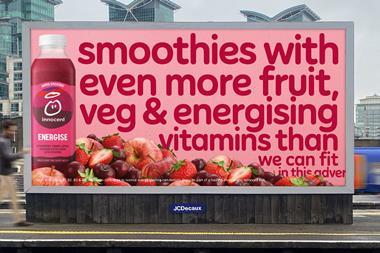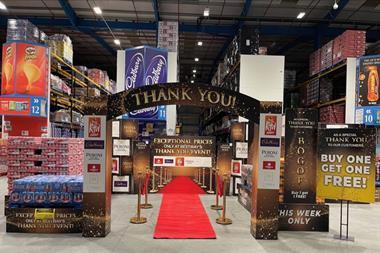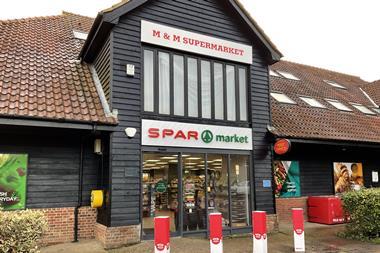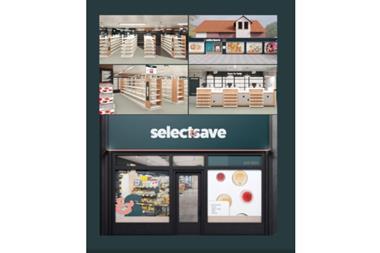Stand firm against mults’ expansion
Convenience retailers are facing competition from the mults on ever-increasing fronts, but evidence shows there is reason to stand firm
A third front has opened up in the multiples campaign of expansion within the UK grocery market. While the Big Four are continuing to submit applications for new supermarkets across the country as well as stepping up their moves into the convenience sector, operators such as Tesco and Asda are among those pouncing on new retail-ready space in out-of-town parks vacated by other operators such as B&Q and Focus DIY.
This latest expansion technique dubbed the hermit crab syndrome is a particular and unforeseen consequence of the recession. As struggling retailers vacate out-of-town units, the supermarket operators move into their shells. In its most recent variation, Asda and B&Q have proposed that the grocery multiple moves into half of the DIY chain’s store in Belvedere, Kent. Local retailer Amit Patel fears that a national trend could emerge as the likes of B&Q look to reduce their overheads.
And let us not forget that more traditional expansion routes are still being strenuously pursued.
What you can do:
Get in touch with neighbourhood forums
Contact your MP and local councillors and urge them to support town centre first planning solutions
Contact any high-profile residents for extra campaign publicity
Put your own house in order: focus on great service, community involvement and creative promotions.
Among current developments, the Somerset town of Frome is bracing itself for a 40,130sq ft supermarket development including some 513 car parking spaces, while Tesco is planning to resubmit plans for a 90,130sq ft store in Nottingham, after council officers recommended refusing planning permission. Tesco already has 25 stores in the area, but seems determined to have its way once again.
And yet there are reasons to take heart. The hermit crab trend sounds menacing, but recent Nielsen research unveiled at the recent FWD conference shows that out-of-town sales fell behind those of the grocery market overall for the first time last year.
Out-of-town sales of FMCG products grew by only 2.6% last year, behind the 3.4% achieved in the market overall. Petrol prices undoubtedly have an impact here, and Nielsen reports that increasing numbers of shoppers are now concerned about rising fuel costs, and choose where to shop based mainly on the outlet being on the way to or from work or school, rather than making a special trip.
But despite this inducement to shop more locally, record numbers of shoppers admit to having no spare cash, so all retailers need to work at fostering loyalty in order to grow sales.
One way to do this is by highlighting your work in the community. As John Heynan, sales director at Molson Coors, said last week: “Independent stores need to really push their community involvement. It annoys me when I see Starbucks promote theirs on a big board in-store yet they’re a global business based in Seattle.”
Competing with the mults is one way, standing up to them is another. Amit Patel didn’t miss a beat in canvassing local support against the Asda/B&Q proposal, which is yet to be submitted to the council. Amit has contacted councillors, local retailers and residents and his MP, who has pledged to help ensure the voices of local retailers are heard.
Meanwhile, residents campaigning against the Frome proposals have gained support of a local celebrity, TV presenter Kevin McCloud, who has raised public awareness of the issue.
Campaigns such as these should gain encouragement from small victories, too, such as a council’s recent decision to refuse an application for a 2,513sq ft Tesco store in Hadleigh, Suffolk, despite planning officers recommending it approve the scheme. The battle had been raging for 13 years, but ultimately councillors decided it would harm the retail economy. Every little helps, as the saying goes.




















![C-Store_Champions_logo-CHOSEN[1] 2023](https://d2dyh47stel7w4.cloudfront.net/Pictures/380x253/6/5/7/301657_cstore_champions_logochosen12023_817064.jpg)






1 Readers' comment